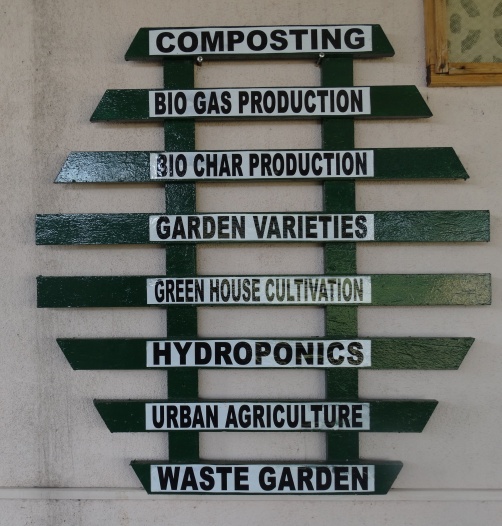Regenerative Farming
The Principle and Philosophy behind the Regenerative Farming

Regenerative Farming is a system of farming principles and practices that increases biodiversity, enriches soils, improves watersheds, and enhances ecosystem service. This system is based on conservation and rehabilitation approaches to food security and farming. Today’s farming production in peri-urban areas are structured by deteriorating ecological conditions and lack of enabling economic environment. Many small landholding farmers live in precarious conditions due to capital-intensive cash crop production. Farming is no longer considered lucrative, shrinking land availability for food security
At Biowise Farm we are converting a micro part of the City’s biodegradable waste into value-added compost and applying it to the soil to grow chemical and pesticide-free, fresh farm food products for consumption. Our approach focuses on topsoil regeneration, increased biodiversity, improving water, and enhancing ecosystem services. This closed-loop system in waste management is an outcome of thirty years toil and reflection. In the process, we have learned a lot, starting from soil amendments, from native practices to new technologies, use of bio approach for control of pests, diseases and weeds, improved agronomic practices, raising seedlings, use of affordable farming machinery, poly house farming, rainwater harvesting, beekeeping, seasonal to perennial crops growing, to name a few. We cannot claim that we have addressed all solutions to farming problems but a visitor to the farm can learn a lot. Now we feel we are on a new threshold that could offer innovative solutions for the city in its food chain and prevent pollution at the city’s outskirts caused by indiscriminate dumping of solid waste and wastewater. But, how does it contribute to climate change?
Soil and Climate change:
Soil is an ecosystem within an ecosystem, full of life interacting with its immediate environment. Soils with more soil carbon, or organic matter, function better than those with less soil carbon since organic matter affects critical soil functions. Healthy soils can help sequester carbon.
Climate change is expected to result in frequent heavy rainstorms and more frequent periods of drought. Healthy soils improve resilience during wetter periods. They act as a filter and reservoir to enable better water infiltration, percolation through the soil, reduce soil erosion and helps in flood mitigation. Healthy soil provides clean air and water, bountiful crops, pastures, forests, wildlife habitat and landscapes. It does this by cycling and storing nutrients, regulating and partitioning rainwater, creating diverse habitats above and below the soil surface. Healthy soils filters as well as degrades toxins while providing physical support plant growth and water quality. Similarly, healthy soils are important during periods of high heat because of their ability to hold available water and regulate soil temperature. Healthy soils have a higher available water-holding capacity than poor quality soils.
In scaling the live farm of Biowise, would pave way for incremental innovations in closed loop systems, funneling back nutrients and resources in waste stream and create a paradigm shift in approaches to waste management while creating a circular economy that promotes regenerative farming. Regenerative Farming also offers many benefits beyond carbon storage! It increases the soils water holding capacity, stops soil erosion, protects the purity of groundwater and sets up the conditions for crops to become more disease and pest resilient.